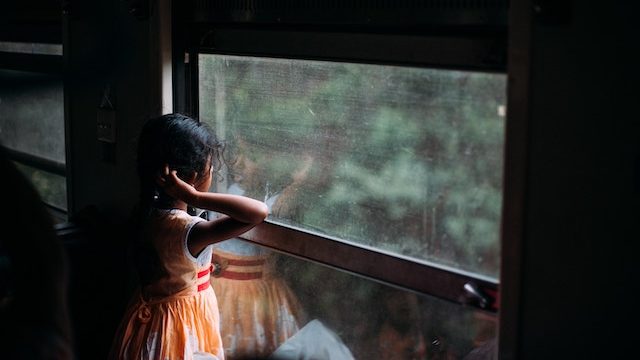Young Australian backpackers heading overseas may want to think twice before volunteering at an orphanage in a developing country.
According to Save the Children Australia, Bali, Thailand and Cambodia have seen the number of orphanages increase by up to 500% as ‘voluntourism’ — volunteering while on vacation — has drastically increased across Southeast Asia. But there’s a darker side to this trend: children are being trafficked into orphanages. Often their parents are still alive.
“Most people mean well, so ‘voluntourists’ are … choosing holidays or holiday packages and they want an element of doing good in it, and orphanages seem to have been one of the things that attracts people,” Save the Children child protection expert Karen Flanagan said.
“Unscrupulous people in developing countries are seeing that opportunity and they’re taking children from families or trafficking children, from poor families generally, to meet this demand.”
It was a situation that shocked Maddi Kent when the Perth backpacker decided to travel to Africa to volunteer at orphanages and schools in 2014 at the age of 19.
The now 25-year-old spent two months in Uganda and four months in Kenya and found there were grave issues with how the volunteering programs in which she was involved were being managed by Western companies.
“The lack of communication is probably first and foremost, but there’s also a lack of care,” she said.
“If you’re not crosschecking the projects that you’re sending volunteers to, they could actually be damaging the community or abusing the kids.
“They’re not going on the ground and checking is their project sustainable — are there legitimate kids that need help, are they being treated right and are they being fed?”
As more volunteers realize that they are potentially helping to prop up an industry linked to child trafficking, volunteer placement agencies have come under pressure to stop sending volunteers to orphanages.
Intrepid Travel was one of the first to do so in 2015, saying “Intrepid Travel does not offer or support voluntourism, or orphanage tourism for that matter. Children are not tourist attractions, and should not be treated as such.”
Karen Flanagan from Save the Children explained that “Many [companies] when they became aware have absolutely engaged with ReThink Orphanages and Save the Children to say, ‘please help us, we had no idea we were actually doing harm, we thought we were doing good’,” she said.
University of WA international law expert Melanie O’Brien also said that volunteer companies need to make they aren’t contributing to unethical practices, as well as check how local staff are treated.
“Companies need to be asking are the money and resources really going to where they are needed,” she said.








Freedom United is interested in hearing from our community and welcomes relevant, informed comments, advice, and insights that advance the conversation around our campaigns and advocacy. We value inclusivity and respect within our community. To be approved, your comments should be civil.
When I was in India, I found out, while visiting a hospital, that there are also infants with one parent (or both) who, if they are lucky, abandons them at an hospital or orphanage. We looked after a seven month old who had been abandoned after being born in the hospital courtyard because she was a girl. A local Pastor and his wife adopted her. Another Pastor and his wife adopted an exposed infant girl that someone found in the jungle. While trafficking does exist, so does abandonment.
Gender issues in India are somewhat to that country due to an extremely string cultural disdain for female babies. I think it has something to do with them being a lot more expensive to marry b/c the brides family pays for weddings or something but I’m sure its more complicated than that. The point I’m making is that its not a coincidence the stories you bring from India involve female children and that does not directly tie to the article.